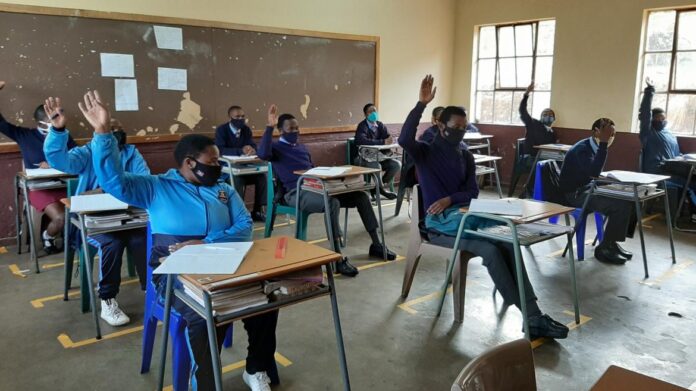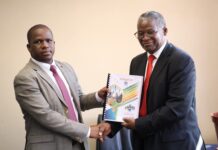In a bid to improve the quality of education, the ministry of education and training has standardised mock examinations timetables for all external classes.
The standardised timetable will be used across all schools; both public and private, with effect from July 7.
The standardisation of the mock examinations timetable means that all learners in Forms III and V will write the same subject on the same date. Previously, schools set their own mock examination papers and the timetable on which the different subjects learnt by pupils were written.
Mock examinations serve as a tool to prepare learners for the final end of year assessment.
The released timetable indicates that on July 7, Form V and Grade 11 learners will write their Biology papers three and four which is mainly practical. The last subjects, Mathematics paper 4 and prevocational Information Technology paper 1 and French paper 2 will be written on July 30.
The academic calendar states that schools will close for the second term on August 8.
A communiqué that was signed by the Ministry of Education and Training’s Principal Secretary Bhekithemba Gama to all regional education officers (REOs), the latter were to disseminate the set timetable to all schools so that they could have time to prepare before July 7.
The resolution to standardise the timetable is in accordance to Circular 3 of 2025 which was issued on June 4.
“In the quest to achieve her mission of providing quality education, the ministry of education and training has deemed it fit to introduce a standardised timetable for Mock Examinations in external classes (Grade 9 and Form III; Grade 10 and Form V) for all Secondary/High Schools across the country, effective from the second term of the academic year 2025,” reads the circular.
This was designed to enhance the quality of assessment practices, promote fairness, and improve learning outcomes in our education system. The rationale for the standardised timetable as outlined in the Circular is that it will minimise discrepancies in examination administration, reducing opportunities for malpractice and promoting academic integrity.
The ministry is also for the idea that a synchronised mock examination system will enable standardised syllabus coverage for all subjects, so reliable data on learner performance, identification of learning gaps, and implementation of targeted interventions will be feasible.
“The standardised timetable will ensure that all schools conduct mock examinations under the same conditions, allowing for a fair and consistent evaluation of learner performance. This is in line with that subject panels prepare and moderate mock examination papers,” the Circular reads in part.
This way, the ministry said both the schools and the country’s education system would benefit as the initiative will enhance learner comparability, streamline supervision of the exams, and adequately prepare learners with better time management and exam techniques while enhancing a system-wide improvement towards curriculum delivery.
To ensure that all headteachers comply with the set timetable, the ministry said random checks would be conducted by quality monitoring teams.
Chief Inspector, Secondary Dr. Cebsile Nxumalo emphasised that writing mock examinations had always been done in schools, and that the ministry had only standardised the timetable to allow for all schools to write examinations on the same subjects on the same day.
SNAT decries lack of engagement
SWAZILAND Association of Teachers (SNAT) decries the lack of engagement of stakeholders before such decisions are made.
Deputy Secretary General Mxolisi Ngcamphalala said teachers had an exclusive right to be represented at forums where issues and policies that would affect them are discussed.

He said before the Circular on the standardisation of the mock examination timetable was issued, teachers, like all other stakeholders, should have been engaged because they knew the different dynamics in the education sector. He made an instance of the shortage of teachers and lack of resources in some schools, which he said made the ground to not be level for schools to then comply with the Circular.
Further, Ngcamphalala said with the lack of human resource, it was impossible for teachers to mark the examination scripts and complete compiling marks during the period between July 30 and August 8.
“If we had been consulted, we would have brought to the fore the amount of time it takes a teacher to mark their learners’ assessment scripts,” emphasised Ngcamphalala.
On that note, Eswatini Principals Association (EPA) shared the same sentiment at SNAT, and cited that planning for each academic year is usually conducted at the beginning of the year, as such, schools had already scheduled dates for learners to write their mock examinations.
Like SNAT, EPA Secretary General Mduduzi Masilela claimed that headteachers were not consulted regarding the development that they are now expected to implement. He said headteachers considered the ministry’s proposed start date for the mock examinations, July 7, to be too early and may not be practical for many schools.
“Currently, some schools are still engaged in ongoing ball games and, as such, will not be in a position to meet the ministry of education and training’s stipulated deadline.
“It is also important to note that only schools that have subscribed to the Subject Associations receive the mock examination papers, effectively resulting in schools having to purchase these exams,” stated Masilela.








